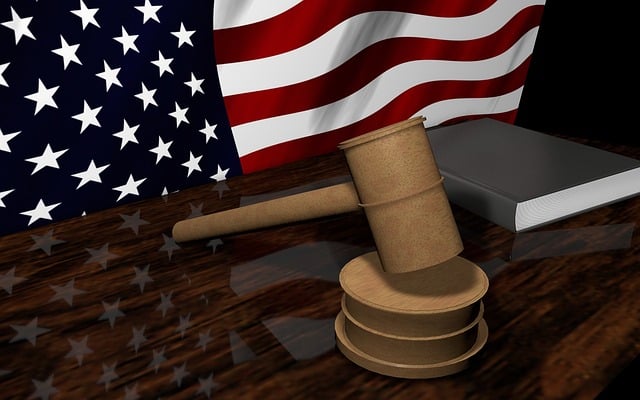Understanding and effectively challenging regulatory agency decisions is crucial for defendants facing public corruption allegations, which carry severe consequences. This involves scrutinizing evidence, procedural errors, and legal interpretations within complex, varying legal frameworks. Specialized legal experts in administrative law can guide clients through these "labyrinthine" processes, protecting rights and aiming for resolutions that balance regulations with individual entitlements. Key strategies include identifying procedural errors, evaluating evidence and legal interpretations, and building a defense showcasing ethical business practices in white-collar cases. Navigating appeals is vital for seeking justice, requiring deep understanding of procedures, gathering evidence, and presenting arguments to higher authorities.
“Public corruption charges pose significant threats to societal trust and governance. This comprehensive guide delves into the intricate world of understanding and defending against these accusations. From defining public corruption and exploring legal frameworks, to strategies for mounting a robust defense, it provides insights for those faced with such challenges.
We dissect when regulatory agency decisions may be contested, emphasizing grounds for challenge under specific circumstances. Additionally, it offers practical advice on evidence gathering and navigating appeals processes, ensuring justice and accountability in the face of corruption allegations.”
- Understanding Public Corruption Charges: Definitions and Legal Framework
- When Regulatory Agency Decisions Go Wrong: Grounds for Challenge
- Strategies to Mount a Successful Legal Defense Against Corruption Accusations
- The Role of Evidence: Gathering and Presenting Compelling Information
- Navigating the Appeals Process: Seeking Justice and Accountability
Understanding Public Corruption Charges: Definitions and Legal Framework
Public corruption charges encompass a range of illegal activities where public officials abuse their power for personal gain. This includes bribery, embezzlement, and fraud, among other offenses. The legal framework surrounding these charges varies across jurisdictions, but common elements involve strict regulations and penalties designed to maintain integrity in public service. Understanding the specific laws and definitions is crucial when navigating how to challenge regulatory agency decisions in such high-stakes cases.
When facing public corruption allegations, individuals often seek to challenge the underlying evidence and legal interpretations. This involves examining procedural errors, inadequate proof, or potential violations of due process rights. Given the sensitive nature of white-collar and economic crimes, defendants must navigate a complex legal landscape. Across the country, strategies may differ based on local laws, but a thorough understanding of the charges and how to challenge them is key in defending against these serious accusations, especially in high-profile cases that attract significant public scrutiny.
When Regulatory Agency Decisions Go Wrong: Grounds for Challenge
When Regulatory Agency Decisions Go Wrong: Grounds for Challenge
In many high-stakes cases, especially those involving white collar defense, understanding how to challenge regulatory agency decisions is crucial for avoiding indictment and ensuring a fair outcome. These agencies, while tasked with protecting public interests, can sometimes err in their judgments. Individuals or entities facing such decisions have legal avenues to question their validity and fairness.
Grounds for challenging these decisions include procedural errors, lack of substantial evidence, and violations of due process rights. In complex regulatory environments, it’s essential to scrutinize the agency’s methodology, data reliance, and interpretation of laws and regulations. Legal experts specializing in administrative law can help navigate these labyrinthine processes, ensuring that clients’ rights are protected throughout the challenge, aiming for a favorable resolution that respects both regulatory mandates and individual entitlements.
Strategies to Mount a Successful Legal Defense Against Corruption Accusations
Facing public corruption charges can be a complex and daunting task. To mount a successful legal defense, individuals or organizations must employ strategic approaches that challenge the accusations with rigor. One crucial step is to thoroughly understand the specific allegations and gather compelling evidence to refute them. This involves meticulous record-keeping and documentation of all relevant business transactions, as these will serve as the foundation for your defense strategy. By examining financial records, contracts, and communication logs, you can identify any inconsistencies or misinterpretations that may have led to the corruption charges.
Additionally, navigating regulatory agency decisions is a vital aspect of the defense process. Knowing how to challenge these decisions through legal channels is essential. This may include submitting comprehensive responses to allegations, providing evidence of compliance with relevant laws and regulations, and presenting expert testimony when necessary. Engaging in open dialogue with regulatory bodies can also help clarify misunderstandings and demonstrate good faith efforts to adhere to legal requirements. For instance, if a business faces accusations of economic crimes, understanding the specific white-collar charges and preparing a defense that showcases their respective business practices and adherence to ethical standards will be key in a jury trial.
The Role of Evidence: Gathering and Presenting Compelling Information
In public corruption cases, the role of evidence is paramount. Gathering compelling information that supports allegations and challenges regulatory agency decisions requires a strategic approach. This involves meticulous documentation, data analysis, and expert testimony to build a robust case. Prosecutors must navigate complex legal landscapes, ensuring every piece of evidence is admissible and relevant to prove corrupt practices within public entities or among corporate and individual clients.
Effective presentation of this evidence during jury trials is crucial. Clear and concise argumentation that links the facts to applicable laws can sway the jury’s perception. Understanding how to present information in a way that resonates with the jury, while adhering to legal standards, is key. This process demands a deep understanding of both the respective business operations and the intricate details of corruption charges, ensuring a comprehensive and persuasive case.
Navigating the Appeals Process: Seeking Justice and Accountability
Navigating the appeals process is a crucial step in seeking justice and accountability for public corruption charges. After a conviction or regulatory agency decision, individuals or organizations have the right to appeal, challenging the findings and seeking a complete dismissal of all charges. This intricate process involves understanding legal procedures, gathering compelling evidence, and presenting a strong argument before a higher authority.
For those facing public corruption accusations, it’s essential to consult legal experts specializing in administrative law and appeals. They guide clients through each stage, ensuring their rights are protected and that the appeal is structured effectively. With an unprecedented track record of success across the country, these professionals help navigate complex legal landscapes, aiming for the complete dismissal of all charges.
Public corruption charges can significantly impact an individual or organization’s reputation and future prospects. However, with a thorough understanding of legal frameworks, strategic planning, and robust evidence gathering, it is possible to mount a successful defense against these accusations. Knowing how to challenge regulatory agency decisions is crucial in navigating the complexities of public corruption cases. By employing effective legal strategies, presenting compelling evidence, and understanding the appeals process, those faced with such charges can seek justice, accountability, and ultimately, a fair outcome.






